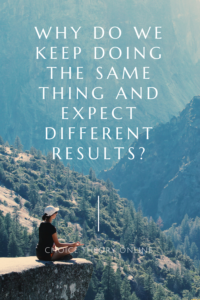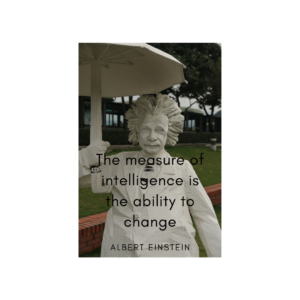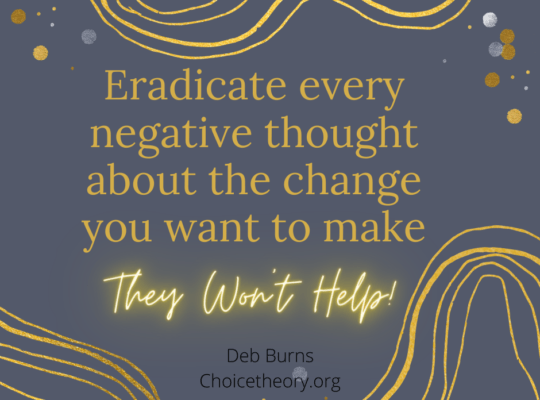 Have you ever asked yourself “How can I be the best I can be?” Perhaps not, most of us create goals and make choices thinking that they will lead us to being better, but most of us don’t consciously consider the question holistically.
Have you ever asked yourself “How can I be the best I can be?” Perhaps not, most of us create goals and make choices thinking that they will lead us to being better, but most of us don’t consciously consider the question holistically.
No One is an Island
<
The book, About a Boy by Nick Hornby, which has became a much-loved movie starring High Grant, is a great illustration of how someone who believes he is an island, grows and makes an extraordinary contribution to the lives of others by taking a mentoring and coaching role with a boy who latches on to him.
The boy in the story, Marcus, clearly sees that if he is going to better himself he is going to need support. Everyone needs support; whether like Marcus we are just trying to survive, or whether we are consciously working towards being the best we can be, we all need a helping hand, a shoulder to lean on, and someone to inspire the potential in us.
These days those connections that add value to our life will not all be on a physical level. Increasingly we are building valuable relationships online and this is a huge advantage in us being the best we can be because we are no longer dependent on allies, mentors, and coaches being in our direct vicinity.
How to Build a Support Network
 The number of people currently in our life with the capacity to effectively support us towards being our best is a very individual thing, some of us have a great support network, while others virtually no network at all. Fortunately, most of us have a reasonable network of people in our lives and its made up of a mixture of people who lift us up and others who we can choose to lift us up or let bring us down. It’s all a matter of perspective.
The number of people currently in our life with the capacity to effectively support us towards being our best is a very individual thing, some of us have a great support network, while others virtually no network at all. Fortunately, most of us have a reasonable network of people in our lives and its made up of a mixture of people who lift us up and others who we can choose to lift us up or let bring us down. It’s all a matter of perspective.
It’s important that we become fully aware of who sits where on the continuum. Those people who are valuable to us in terms of drawing us forward towards our goals are people we want to encourage in our lives and nurture relationships with. These relationships are valuable alliances.
Other places to build our support team are more formal: some we will have to pay for, some are free, and some will be a mixture of paid and free support, but all of this support is important.
Investing in Ourselves
 “Life is like riding a bicycle, to keep your balance you have to keep moving,” Albert Einstein
“Life is like riding a bicycle, to keep your balance you have to keep moving,” Albert Einstein
There is room for every one of us to meet our needs and build a satisfying, successful life, as long as we are aware of the choices we are making and the consequences of those choices. Learning never stops, we are lifelong learners and we can either be proactive and direct that learning ourselves, or life will do it for us by serving up challenging experiences that may derail us.
Growth and success are achieved by small daily actions, repeated consistently over time. Even people deemed to be “overnight” successes, will tell you that they struggled away in obscurity for years before they became an “overnight” success. They will also generally tell you that they invested in themselves along the way and they continue to invest in themselves.
This doesn’t mean that you have to spend a lot of money, although it does help to spend some because it saves time and unnecessary angst. For most of us a mixture of paid and free support according to our budget, is the way to go. All careers have professional development components, this is personal development and it’s just as important.
The Learning Habit
It’s not just a matter of what we learn, but creating the habit of enjoyment in learning. The more enthused we are about learning something the more we associate learning with excitement and pleasure, so the more we will want to learn.
Learning is only half of the equation in growing to be the best we can be after learning comes implementation, which is a continuing form of learning but which involves taking practical, physical action. All the learning in the world is of little value unless we use it to create and to make change. 
Coaching
Coaching is becoming a popular way of being better in a wide range of ways. Historically coaching was related to sports but now we can receive coaching for weight loss, career progression, finance, spiritual practices and even to get better at dating and relationships.
The International Coaching Federation defines coaching as “partnering with clients in a thought-provoking and creative process that inspires them to maximise their personal and professional potential.”
A good coach will work with clients in a collaborative way, with both parties having input into the agenda. Coaches aren’t expected to have all the answers for their clients, but they generally have a higher level of expertise in the area they are coaching, than their clients.
 This kind of coaching is very different from some old ideas we may still have running through our minds of bullying sports coaches. Rather than telling us what to do and how high to jump, coaches should gather information from us to help us to evaluate what we are doing and how we can do it better. Coaches operate from the perspective that we have many of the answers we need inside of ourselves and their job is simply to help us access that knowledge, evaluate it and then implement it.
This kind of coaching is very different from some old ideas we may still have running through our minds of bullying sports coaches. Rather than telling us what to do and how high to jump, coaches should gather information from us to help us to evaluate what we are doing and how we can do it better. Coaches operate from the perspective that we have many of the answers we need inside of ourselves and their job is simply to help us access that knowledge, evaluate it and then implement it.
Awareness and clarity are significant benefits to be found by working with a skilled coach. Quality coaches support their clients on their journey toward self-awareness and give suggestions and feedback on action plans that clients decide upon to move themselves selves forward. Throughout the journey, a new paradigm is created that allows the clients to scale obstacles that, in the past, have hindered their personal and professional development
Another benefit of coaching is accountability and tracking successful movement toward desired outcomes. Regular achievements and acknowledged milestones help keep clients motivated and resilient on their journey.
Mentors

Mentors have more experience in an area than the person they are mentoring and they offer informal advice, support, and encouragement. Mentoring is generally:
- long-term
- informal
- development-driven
- loosely oriented towards growth
Mentors may work with developing co-workers or they may support someone outside of their own business or organisation that is trying to achieve similar skills. Sometimes companies will assign a mentor to an employee, but it is just as likely for mentoring relationships to develop organically.
Unlike coaches, mentors give advice based on their personal and professional experience and expertise. Support is generally driven by the mentee seeking advice related to challenges they are having or related to their development.
In reality many areas of coaching and mentoring overlap, and that’s fine because the overall goal is that we are being supported to be the best we can be, using whatever supports we have available to us.
Counselling

Counselling is another important way that we can get support to be the best that we can be. Counselling benefits clients by creating a trusted and safe space for overcoming challenges. People generally seek counselling to deal with a specific problem or problems. Skilled, and experienced counsellors are comfortable sitting with the sometimes difficult emotions of their clients. Counsellors and psychologists use a range of theories to support clients. Historically these have used retrospective based solutions but increasingly counsellors using theories such as CBT (Cognitive Behavioural Therapy) and Solutions Focused Therapy, are working on getting clients to self-evaluate their current behaviours in order to solve their problems. Choice Theory moves even further away from retrospective navel-gazing by clearly establishing a person’s needs as a basis for understanding their behaviours.
Choice Theory
Whereas most forms of counselling have tended to be “why focused”, Choice Theory is needs-based and has a WDEP focus:
- What do we Want?
- What are we Doing to get it?
- Evaluate: how is that working for us?
- What is our Plan moving forward?
This cut-to-the-chase approach helps to ensure that counselling does not need to be nearly as long-term as it has often been in the past. In fact, a Choice Theory counsellor develops a coaching and mentoring role as the client is assisted to self-evaluate towards their desired outcomes.
Symbiosis
It can be useful for us to have relationships with a mentor, a counsellor and a coach and to have all three supports working symbiotically. People will often have an organic relationship with someone they view as a mentor, while coaches and counsellors can work together and/or refer clients between each other.
An example could look like this:
Georgia enters counselling for alcohol abuse. After a number of sessions it comes to light that Georgia has a desire to start her own business. The counsellor could refer her on to a coach who was experienced in that area. The three of them work together on finding a concrete action plan for Georgia. If this was a Choice Theory counsellor, he could move into a coaching role to focus on any limiting behaviours Georgia might have that may be holding her back.
Coaches will generally have established relationships with counsellors and psychologists. If they are working with a client who presents with psychological issues, that only a trained counsellor or psychologist should be dealing with, they can then offer a referral to someone they trust to provide an appropriate service.
Online Services
Coaches, counsellors, and mentors are all important people to have in our support network, but these services no longer need to be face to face. They can also now be accessed online via platforms such as Skype or Zoom, and also via learning modules. A mixture of Skype and Zoom, together with online modules and downloads can be a very cost-effective way to work and achieve results.
Great counsellors and coaches reach a ceiling in terms of the number of people than can physically work with. This is the reason why we created Choice Theory Online, so that we can make the work that Jeff has done with clients, on an individual basis, accessible to a much wider audience.
Our learning modules are coming soon but if you would like to receive Choice Theory Daily Quotes, or you just need some help to feel better right away, you can sign up for one of our mailing lists and we will be sure to let you know as new course modules are opened up. You can also book a Zoom online counselling session with Jeff at any time.
We hope that this post sets out clearly for you how mentoring, counselling and coaching can be effective components of your support networks to help you to become the best that you can be. Please share any questions or experiences below in the comments section. You never know who you could be helping.
Thanks so much for reading,
Deb








Hi There,
I like these types of websites that cover social interaction as I believe that with an illness I had really detached me from the public and it wasn’t until two years ago when they changed my medication that I began to live a normal active sociable lifer again. Thanks for such an interesting subject.
Stephen
Hi Deb! I’m interested in Choice Theory Daily Quotes. I’ll check it out right now. I really liked the quotes you include on this post, specially the one about life being similar to a bicycle. There is so much balance that each one of us needs and we in occasions don’t realize we need it. Thanks for this post!
Thanks a lot for sharing with us this amazing article and all the explanation given.
I want to tell you that this is my favorite quote Einstein said: “Life is like riding a bicycle, to keep your balance you have to keep moving.”
This quote leads me to the thought that cycling will never be forgotten. Like the actions we take in this life, it must be so that it is not forgotten by anyone. Only then can we be better than we imagined ourselves.
oh, i really like the “we all need a helping hand, a shoulder to lean on, and someone to inspire the potential in us” part. I have always trying to be the better than yesterday, but sometimes we really need someone who will inspire us. Adding second person in the picture is a good reason to be better and best.
Having support is one of the major factors in being the best you can be. No one can do this alone. I can also appreciate the section on investing in yourself, as I myself struggled a long time without knowing the value in investing time and funds into myself rather than pouring it into other things. Being the best you can be is a long road, and having help along the way is always a plus.
I’m not joking when I say I often pose this question to myself, when I’m setting daily and weekly goals and, sometimes hilariously, in the mirror, “fyre, how can you be the best you can be today!” Yep, I have no shame about the conversations I have with myself and, hope no one else does either!
I don’t want to write a book in your comment section but, when I went to college at 36 (first time ever) I had access to the disabled students learning center. It was a professor who initially took notice of the manner in which I struggled. I also was blessed with an incredible life coach for free that helped me create enjoyment in the habit of learning, as you discussed, not just in the academic world but, with myself as well. She taught me that I needed to be as gentle with myself as I am with others (for context, I used to beat myself up a lot.)
That was the first time in my life I had ever ‘let’ anyone support me and help me outside of my closest friends. Your movie example hit home for me. I used to be the kind of person who never asked for help but, there came a point in my life where I truly understood how important having support was to the quality of my life. If only we could all recognize that, if needs be, at that young age. The world would be a much kinder place!
Thanks for sharing so generously Fyre. I love your story and I’m sure others will too.
Hello,
I’m very excited to read your article concerning “How To Be The Best You Can Be”. It’s really helpful because it gives ways for someone to become mature in certain aspects.
Mentorship is indispensable when it comes to mastering. For you to walk comfortably, you need someone who knows very the path; in this case, is the mentor. So, from your explanation, I realized that I need a mentor because there some challenging activities in my online journey that need most experienced people. Would you accept if someone wants you to mentor them? Thank you
Hi Alane
I would help someone through mentorship, although as far as online work goes I believe my expertise is in content writing and the maintenance of a strong mindset. I think people may need a number of mentors because few people are wide-ranging experts.
Hello there, I want to say a big thanks to you or putting up this amazing and interesting article on how to be the best you can be. Being the best should be everyone’s choice, anyways this post really succeeded in setting out clearly how mentoring, counselling and coaching can be effective components of support networks to help one in becoming the best that they can be. It actually opened my eyes to more insights on the advantages of mentoring, counselling and coaching.
Hi there thanks for this insightful review. Okay so ambition can be all about achieving success on your own terms, whereas competitiveness means striving to be more successful than others. Being the best means putting yourself first. It is the opposite of being collaborative. Making a measurable goal is one of the most effective ways to get out of your head and build confidence.